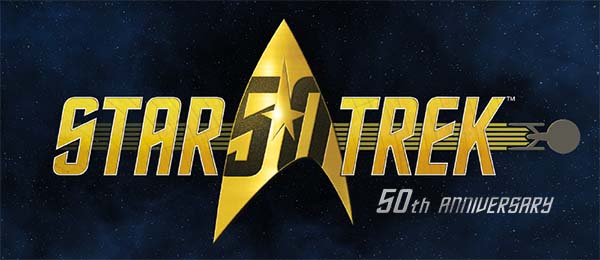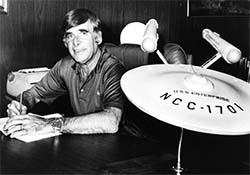
Even though I write frequently about the NFL and the Chicago Bears, I have (believe it or not) never been to a regular season NFL game. Living in Las Vegas, seeing an NFL game always required a road trip. My dad and I went to a few preseason games in Pheonix and San Diego when I was younger (I once saw Joe Montana play the first quarter of a preseason game with the Chiefs), but my dad is a public school teacher, the start of the NFL regular season always coincides with the start of the school year, and so road trips were impractical. So we had never been to a regular season game.
Until now.
I was public and outspoken about my misgivings regarding the financing of the Raiders' stadium in Las Vegas, and I vowed not to support the team. The Raiders were already getting unnecessary corporate welfare from the city of Las Vegas, so I wasn't going to be subsidizing them further with money from my pockets if proceeds from ticket sales weren't going back to the city of Las Vegas. In my opinion, a publicly-financed stadium should put proceeds from ticket sales into the city coffers, and I don't approve of any publicly-funded stadium that doesn't. Mark Davis is a multi-millionaire, and the Raiders are a multi-billion dollar entity; Davis and the Raiders should be able to pay to build their own damn stadium without handouts from taxpayers.
The situation with funding the stadium changed since, and I've softened my position on supporting the team and seeing events at the stadium. One exception that I always had was that I would be willing to shell out for a game if / when the Bears come to town. So I check the schedule when it's released in the spring to see if there's a home game against the Bears.
Sure enough, this year, there was a Bears game on the schedule, and it just happened to be on my birthday, no less!
I saw my first regular season NFL game. The Bears came to Vegas to play the Raiders on my birthday.
The Raiders have a mandatory vaccination policy for attendees, but I still masked-up as an added precaution. [More]
My friends and family have always found that video games and board games are always good go-to gifts for me during the holiday season (which for us, starts in the fall, as my partner and I both have birthdays in September and October). 2020 was a bit different, however. For one thing, the COVID-19 pandemic meant that we weren't able to get groups together for tabletop gaming nearly as often as we used to. The pandemic didn't stop us from tabletop gaming altogether, but we restrained our play to being with only a few regular players, and even then, played mostly 2-player games in order to avoid having multiple house guests at a time. We even sometimes wore masks while playing, just as an added precaution.
It wasn't that I didn't want new board games (or expansions to games I already have); rather, we just weren't sure when I'd ever be able to play them. For example, I did receive the new Crusader Kings board game by Free League Publishing. Hopefully, I'll have an opportunity to play it sometime soon, and be able to write a review for it to go along with my review of the video game.
But video games were not a hard purchase because of the pandemic. Sitting at home and playing video games is, after all, one of the best and safest pass-times during a pandemic. Rather, the big video game releases of this fall came with a lot of baggage or circumstantial reasons why I wasn't enthusiastic to buy them.
Lack of games didn't sell me on a PS5
First and foremost is the biggest of the big new releases this year: the new consoles. I've never been an XBox-player, so there was no interest in a new XBox to begin with. I am, however, interested in the PS5. But I wasn't rushing out to buy one because I'm not going to buy a new console if there aren't any exclusive new games to play on it. And since I wasn't rushing out to buy one, supply problems meant that it only got harder to find one. Honestly, I was surprised that the PS5 seemingly sold so well considering that there just wasn't all that much to play on it. My lack of enthusiasm for the new console meant that even though my partner considered trying to buy one, she eventually decided against it.
The only 2 games on PS5 worth playing are not worth buying a new console.
The big releases for the PS5 were the Demon's Souls remake and Miles Morales. So far, they are the only 2 games worth playing on the PS5, which is why I saw them bundled together with the console at multiple retailers and resellers. I was interested in both, but not enough to drop $400 on a new console -- especially not during a time of economic uncertainty. I'm sorry Sony, but if you want to sell me on a new console, you got to have something better than a remake of a game from 10 years ago (and 2 console generations ago) that I already played the hell out of back in the day, and a sequel to game from 2 years ago that looks like it's mostly just more of the same (and which is also available on the last-gen console anyway). Every other big release for the PS5, from Assassin's Creed: Valhalla to Cyberpunk: 2077 was also released on other platforms, so again, there was no need to rush out and buy a PS5 to play these games -- which I wouldn't have done anyway because both of those games have their own baggage, which I'll get to later in this post.
I only bought a PS4 because of Bloodborne, and the PS5 has so far lacked a similar console-selling exclusive. Maybe they'll have one eventually. Maybe if Elden Ring were a PS5-exclusive, I'd be in more of a hurry to secure myself a console. But as far as I know, that game is set for release on PS4 and will also be available on PC, so I don't need a PS5 in order to play it, the way that I needed a PS4 to play Bloodborne.
WARNING:
The following contains sexual content that may not be safe for work or children, including descriptions of alleged criminal behavior at Ubisoft, and a screenshot from Cyberpunk 2077 that contains nudity. Reader discretion is advised. [More]
335dc6e6-b168-4584-a8e8-a59c1641ddbf|1|5.0
Tags:corporation, abuse, exploitation, pandemic, COVID-19, holiday, birthday, Christmas, gift, board game, Crusader Kings, Sony, PlayStation, PS5, DualSense controller, haptic feedback, Death Stranding, Demon's Souls, Marvel's Spider-Man: Miles Morales, Ubisoft, Assassin's Creed: Valhalla, Yves Guillemot, sexual assault, sexual harassment, Star Wars: Squadrons, CD Projekt Red, Cyberpunk 2077, Keanu Reeves, micro-transactions, crunch

On September 8, 1966, a cultural revolution started. The first episode of a new science fiction television series named Star Trek premiered on NBC. This series broke new ground in the genre of science fiction by being one of the first series ever to present high science fiction concepts to television audiences, while also using its space adventures as allegories for contemporary social and political issues. While it presented itself as mindless space adventure in the same vein as Buck Rogers and Flash Gordon, it took a serious approach to science fiction that (at the time) was limited to literature like the novels of H.G. Wells and the stories of Isaac Asimov.
Star Trek wasn't the first serious science fiction television series. Shows like The Twilight Zone and The Outer Limits had existed for a almost a decade. But Star Trek differed from these series in that it depicted a revolutionarily positive and uplifting version of the future of humanity during the height of the paranoia of the Cold War. Humanity, according to Star Trek would overcome the threat of mutual destruction that the Cold War between the United States and the Soviet Union posed, and we would come out the other side with a spirit of cooperation and a desire to peacefully and benevolently explore the stars, exploring strange new worlds and seeking out new life and new civilizations.
Television science fiction was dominated by childish adventures like Buck Rogers
and more cynical anthology series like The Twilight Zone that drew off of Cold War paranoia.
The show was created by Gene Roddenberry, a former United States army air force pilot and Los Angeles police officer who eventually found his calling as a television writer and producer. He wrote and produced some police dramas and westerns before pitching his defining project: Star Trek. The show was picked up by Desilu Productions, a company that was run by Lucille Ball (yes, the titular actress of I Love Lucy) and her husband. The production of Star Trek was tumultuous. The show was canceled by NBC after its second season, only to be revived due to an unprecedented, fervent letter-writing campaign staged by its fans. It did not survive its third season, however, as Desilu Productions was rapidly running out of money, was forced to cut budgets, and NBC moved the show to the dreaded Friday night "death" slot. In an age before DVRs, or even VCRs, if people were out on the town on a Friday night, and they missed an episode of a show, then that episode simply went unseen.

Gene Roddenberry's optimistic vision
of the future remains endearing.
The series eventually saw tremendous success after its cancellation due to its episodes being syndicated during the 1970's. It gained a cult following that grew and grew, setting up conventions that would come to draw thousands of attendees. Though not immediately apparent, Star Trek would grow to become one of (if not the) most successful science fiction properties in the world. The series is often cited by scientists, engineers, and astronauts as their inspirations for their careers, and the technology of the series has inspired many real-world technological innovations, such as wireless communication, mobile devices (in particularly mobile phones), speech-recognition software, and so on. Roddenberry became the first TV writer to receive a star on the Hollywood walk of fame, has been inducted into the Science Fiction Hall of Fame and the Academy of Television Arts & Sciences Hall of Fame, and was one of the first human beings ever to have his ashes carried into earth orbit... [More]
a36b33e8-1404-42b1-9723-a4759be0acee|2|5.0
Tags:Star Trek, Star Trek: the Next Generation, Star Trek: Deep Space Nine, Star Trek: Voyager, Star Trek: Enterprise, Star Trek: Discovery, Star Trek VI: the Undiscovered Country, Star Trek: Beyond, birthday, anniversary, science fiction, allegory, humanism, humanist, Gene Roddenberry, NBC, CBS, Fox, Paramount, Desilu Production, Lucille Ball, Cold War, Balance of Terror, The Measure of a Man, Kirk, Spock, Data, Gul Dukat, Seven of Nine, Star Trek the Experience, Las Vegas, Wallace Shawn, Grand Nagus Zek
|

| 12 | | | | | | | 60 | | 11 | | | | | | | 55 | | 10 | | | | | | | 50 | | 09 | | | | | | | 45 | | 08 | | | | | | | 40 | | 07 | | | | | | | 35 | | 06 | | | | | | | 30 | | 05 | | | | | | | 25 | | 04 | | | | | | | 20 | | 03 | | | | | | | 15 | | 02 | | | | | | | 10 | | 01 | | | | | | | 05 |
|